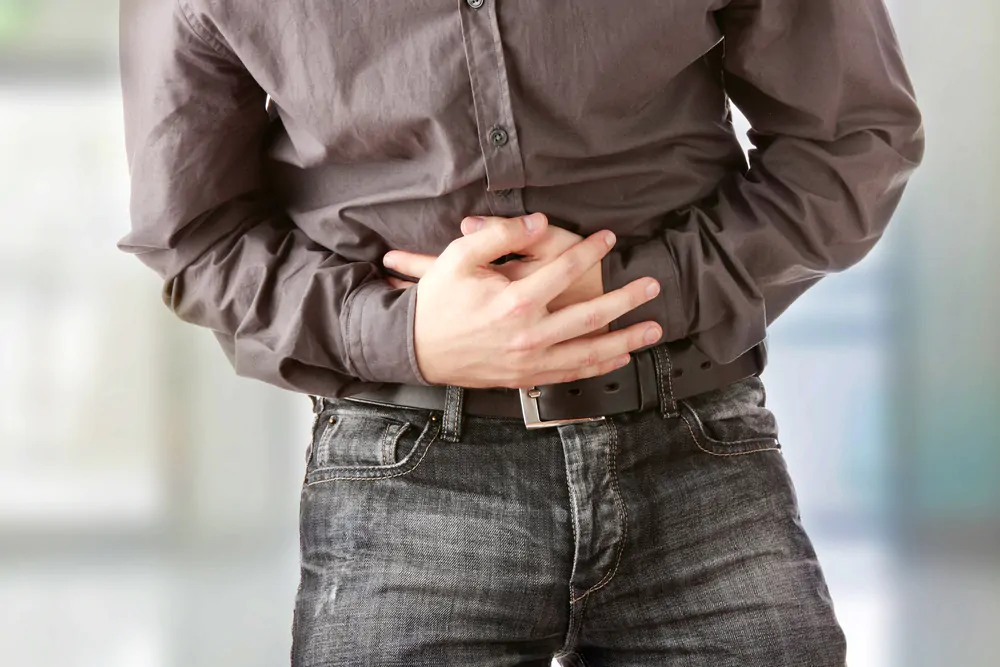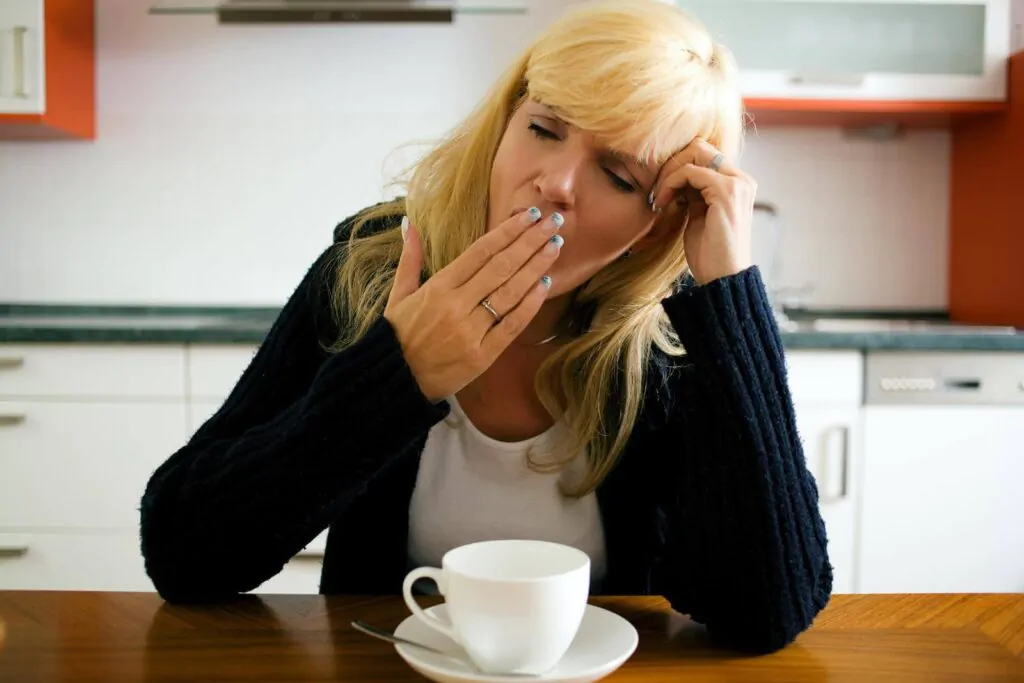Most coffee lovers have experienced jitters, stomach upset, and other side effects of caffeine. Here, we’ll explore the answer to “Is caffeine a stimulant?”

Yes — caffeine is a stimulant. Caffeinated drinks can provide a delicious morning pick-me-up, or they can drag you down with a laundry list of side effects.
Your heart rate, sleep, digestion, and athletic performance can all be affected by caffeine intake. Some people — like those who are pregnant, breastfeeding, mental health issues like anxiety/depression, or have high blood pressure — need to be especially cautious of how much caffeine they take in on a daily basis.
Here, we’ll explore the positive and negative effects of caffeine, explore how large amounts of caffeine can affect the central nervous system, and take a look at easy ways that you can cut down your caffeine consumption while still enjoying a cup of coffee each day.
Effects of Caffeine On The Body

Your caffeine intake affects many of your body’s systems, from your nerves to your digestion. Whether you’re interested in lowering the amounts of caffeine you take in to help you sleep better at night or you simply want to know how your favorite coffee or soft drinks affect your mood, we’ve got you covered.
Central Nervous System Effects
The central nervous system is made up of the brain and the spinal cord. Together, these organs control many of the body’s functions.
Effects of caffeine on the central nervous system include:
Mental alertness
For many people, this is the most immediately noticeable effect of caffeine on the central nervous system. This can provide you with the boost you need to nail a presentation at work or have high energy for a tough meeting.
Shakiness
Sometimes, caffeine can be over-stimulating. This can cause shaking of the hands and fingers, especially if high doses of caffeine are ingested.
Pain relief
Headaches are often caused by throbbing blood vessels in the brain. Caffeine is a common ingredient in over-the-counter pain relievers and can help to constrict these blood vessels, leading to headache relief. In some people, however, caffeine can have a negative effect on headaches, causing them to occur more frequently.
Prevention of disease
Some studies have shown that people who drink fully caffeinated coffee have a lower risk of developing Alzheimer’s disease.
Digestive System Issues

Some people rely on a morning cup of coffee to get their digestive system moving in the morning. Relief of constipation is a short-term health benefit of small doses of caffeine.
It’s important to stick to moderation, as using too much caffeine can cause the digestive system to speed up to an uncomfortable degree, causing diarrhea and other digestive system distress.
Some people also notice that caffeine affects their desire to eat, working as an appetite suppressant that leads to weight loss.
Dehydration and Caffeine
Caffeine is a diuretic, meaning it pulls water from the body. Many health experts recommend drinking two cups of water for every cup of coffee in order to negate coffee’s dehydrating effects. If you notice that coffee is causing an increase in your normal rate of urination, it’s likely that you’re becoming dehydrated and need to up your water intake.
Caffeine, Pregnancy, and Breastfeeding
People who are pregnant are advised to limit their caffeine intake to 200 milligrams of caffeine or less per day. This is about the amount in two six-ounce cups of coffee. Using too much caffeine during pregnancy can cause low birth weight and other health issues.
Those who are breastfeeding also need to keep an eye on their caffeine consumption but have a little more leeway. Most physicians say that up to 300 mg of caffeine is fine while breastfeeding. It’s important for pregnant and breastfeeding moms to follow their doctor’s medical advice when deciding whether to use caffeine.
Withdrawal Symptoms After Caffeine Use

Since caffeine is a central nervous system stimulant, it’s normal to experience some side effects when stopping or slowing caffeine use, especially if you’re someone with caffeine dependency. Tiredness/drowsiness, lack of mental alertness, headaches, and constipation are all normal signs of caffeine withdrawal in otherwise healthy adults. You might also be interested on reading our guide on if espresso loses caffeine over time.
The Final Word On Is Caffeine A Stimulant
Yes, caffeine is a stimulant, and drinking caffeinated beverages can have a negative effect on health if not consumed carefully. If you notice signs of caffeine dependency, it’s smart to talk with your doctor to get medical advice on how to lower your caffeine consumption.
FAQs About Is Caffeine A Stimulant
How much caffeine is too much?
A caffeine overdose is possible, but it’s rare and is usually related to taking caffeine pills. If you take amphetamines (like Adderall) for a health condition, it’s smart to avoid caffeine, as your medication may increase the side effects of caffeine. For adults who are not taking medication, up to 400 milligrams of caffeine per day is usually safe.
Can drinking too much coffee to too many energy drinks negatively affect health?
Yes. Drinking too much caffeine can cause a decrease in body weight, difficulty sleeping, heart problems, and more. If you think you’re drinking too much caffeine, talk to your doctor about how to cut down while managing the symptoms of caffeine withdrawal.
What are common caffeine withdrawal symptoms?
Thankfully, there are few long-term effects of caffeine withdrawal. Short-term effects may include drowsiness, constipation, lack of mental alertness, and more.
Usually, the effects of caffeine withdrawal fade in a few days. If you’re dealing with caffeine withdrawal, consider enjoying tea or milk chocolate to get a small amount of caffeine as you work your way off of caffeinated coffee and/or energy drinks.
